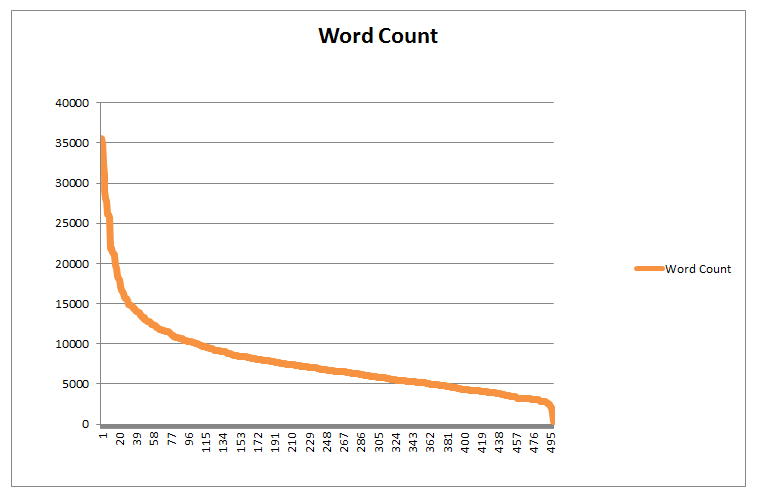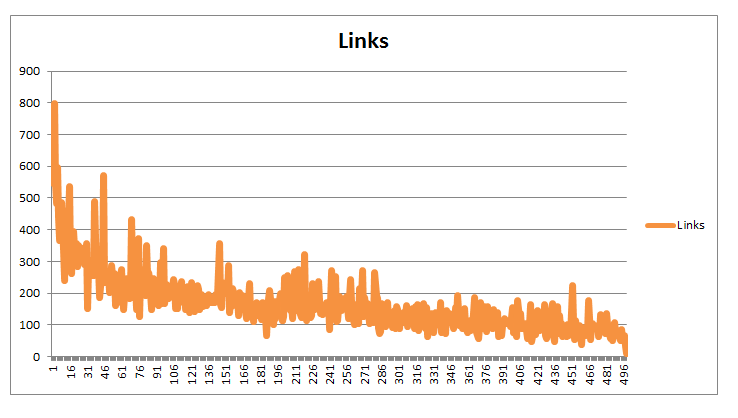
Having a beautiful site with nothing on it is not enough though. If you want to start growing your visitors and building momentum for your new business then you’re going to need to add content.
Why ‘Content is King’
Content generally refers to ‘writing’ when used online and in the case of a blog, this means blog posts. This type of content is what most of us are looking for when we search for things on Google: we want information, entertainment, or opinion. Thus, by adding more content to your site, you give people an incentive to visit and you let yourself get to know them. Content is important for more reasons that than though. For instance, it also happens to be your site’s content that will ensure you win or lose at SEO. Search engines work by trying to match search terms to the content on a website. The more writing you have, the more chance there is of you getting a ‘hit’ and the more people will start finding your site with relevant good queries.
Content is also critical for ‘content marketing’. Content marketing is basically a form of marketing that revolves around your blog posts. The idea here is that you’re going to update your site regularly with interesting articles and posts and this should then help you to find genuine fans of your work. These people might subscribe to your site, join your mailing list (more on that later) or just bookmark your page. They’ll then come back regularly to see what interesting new content you’ve added lately and each time they do, you’ll have a new opportunity to market to them.
What’s more, content marketing will allow you to demonstrate your knowledge and expertise on a subject. If your readers get to the point where they respect what you have to say and they start seeking you out for answers to questions, then you’ll be able to sell to them more easily when you recommend an informational product you’ve made, or perhaps an affiliate product you’re getting a commission on.
Content is also crucial for your social media marketing (as you can share it to your channels to get more followers) and it can be used to sell things directly. In short, the success of your blog revolves almost entirely around the content that you’ll be uploading to it.
How Much Content Should You Be Adding?
So here’s the golden question: How much content do you need to add to turn your website into a big success?
There’s no single answer here though and of course, the best guidelines will depend on what your blog is about, who your typical reader is, etc.
You should also keep in mind that quality always trumps quantity. Quality content is essential to the success of content marketing because it’s what resonates with audiences and ultimately drives engagement, loyalty, and conversions. While it’s tempting to churn out a high volume of content to increase visibility, it’s important to remember that the quality of the content matters much more than the quantity. High-quality content demonstrates expertise, provides value and fosters a sense of trust between the brand and the audience. Ultimately, investing in quality content will yield better results in the long run, as it can help build a loyal following and establish a brand’s reputation as a trustworthy source of information or entertainment.
BUT the simple guideline for how much content to add is just: as much as you possibly can while staying consistent.
Consistency is key.
We’ve seen all the ways that content can help your website. We’ve seen that ‘content is king’ and that SEO basically amounts to adding writing to your site for Google to find… and with that in mind, it follows that the more content you can add, the more chances you will give people to find you and the more you’ll stand to make from your site.
We touched on this briefly in the introduction already but this is really the key point you should take from this e-book. To be successful from a blog, you need to really invest yourself in it. That means spending a lot of time making tons of great quality content and then promoting it. You can upload a blog post once a week and be fairly successful. But if you want to skyrocket yourself to prominence you really need to be posting multiple times a week or even multiple times a day. Your rewards will grow exponentially the more top-quality content you are putting out.
How Many Words Should Each Blog Post Be?
Now that you have an idea as to how much content you should be adding, the question now is how many words or length should each blog post be? According to Neil Patel of QuickSprout.com and statistics from SerpIQ, longer posts are usually better.
Typically longer posts attract more search traffic. Take a look at this graph from SerpIQ: Notice the top content length is sitting around 2000 words.

Longer posts are usually more comprehensive than a short 500-word article–there’s more meat and detail in it.
The reasons why it’s better for search traffic is because you are including more <h1>, <h2>, <h3> headings and keywords within your posts.
The higher your word count, the more link-backs you’ll get. Take these graphics from Moz as proof:


More link-backs means more search traffic.
Neil Patel says:
“My own research on Quick Sprout confirms this. All of my posts that are more than 1,500 words receive 68% more tweets and 22% more Facebook likes than the articles with fewer than 1,500 words.”
Just something to consider when writing your posts.
Choosing Topics
The next question then is how you’re going to go about picking topics to write about. How do you bring something fresh to your chosen niche that hasn’t been seen before? How do you ensure that your content is going to bring in readers and that it’s in demand?
SEO
I shared some tips on search traffic earlier but let’s talk about it a little more. One strategy is to focus on the SEO aspect of your articles.
The ideal situation here is that you write a post that people are searching for but that doesn’t yet exist. Alternatively, you can try and write a subject that is popular right now but not yet oversaturated.
You can do this by using keyword research tools. Keyword research tools effectively allow you to see what people are looking for and how the competition stacks up.
The best-known keyword tool is Google’s own ‘Keyword Planner’ (http://adwords.google.com/keywordplanner).
This is designed for people who are thinking of using Google’s paid ‘AdWords’ platform for advertising and the idea is to show which search terms might be a good use of investment capital for a company hoping to gain exposure to a specific audience. Unfortunately though, Google ‘depowered’ their keyword planner a while back because they didn’t want to provide too much information for those trying to ‘game’ their search ranking system. This means that you can’t see all of the good keywords currently available.
Instead, you might decide to look into alternate options like the free Wordpot or paid Moz Keyword Analysis, Raven Tools Research Central, or Keyword Spy.
To use these, simply search for the topic of relevant terms alongside the search volume (how many people are regularly searching for them). From there, you can then try searching the term yourself in Google and then seeing what the competition looks like. Find a highly competitive keyword, then ask yourself: can you do better than that? And also: how?
For added SEO benefit, you then want to subtly lace your keywords into the content, so that you are occasionally repeating the phrase in a non-forced manner (as well as using related terms). Don’t make it obvious (this is called ‘keyword stuffing’ and it will get you penalized) but just take the opportunities as they arise.
Keyword research is a very handy tool for finding topics that will be a hit for your website but make sure that you don’t let keywords dictate the topics of your articles – otherwise, you’ll end up with a bunch of generic posts that are written for Google over actual humans that might read them!
Places to Research
Another way to get great ideas for content is simply to keep an eye on what other people are talking about and on news. Looking at forums in your niche is a great way to do this, as you can see what people are talking about, asking questions about etc. You can even post there yourself and just ask what people want to hear more of!
Of course, you can also look at what your competitors are writing about and you can look at news sites. News sites generally have sections like health, technology, etc. and these can provide useful topical prompts for your content. Note though that anything that is too topical will not be ‘evergreen’. In other words, it will have a limited shelf-life as far as being relevant goes which means you won’t be able to get more value out of it in the future.
Another trick is to look at news from websites not in your niche and then to combine that news. In other words, you might have a fitness website but perhaps a new motion-controlled computer game is relevant? Or maybe you could write something based on technology?
Easy Ways to Get Content
Looking to get content without having to put in all the leg work yourself? As it happens, there are a number of ways you can get good content for ‘free’ and without working.
One is to create ‘curated content’. Curated content is simply content that you have gathered from around the web. None of it is original but by collecting it all in one place, you can offer something new.
A very basic example of curated content would be a list of famous or inspirational quotes for instance. You can go further than that though and use full paragraphs, links, or even entire short articles. As long as you are providing value to your target audience by collecting all the content in one place, it will be useful for your readers.
Note as well though, that curated content runs the risk of penalization from Google. Google doesn’t like people to use ‘duplicate content’ which is any content that has already been published elsewhere. Of course, your curated content runs the risk of falling into that trap. This is fine: just make sure that you drive most of your traffic to this particular article from social media and try to avoid using this strategy too regularly. Another tip is to use smaller passages – this can also help you to avoid being guilty of simple copypasta.
Another way you can get great quality content for free is by publishing the work of guest bloggers. Guest bloggers are bloggers who publish content on your site in exchange for a free link back to their site. This gives them some promotion and you get some free content in the process – it’s a genuine win/win scenario!
Great teaching, Paul, for newbies like me. Thank you.
Thank you so much for your appreciation. More blogs to come!